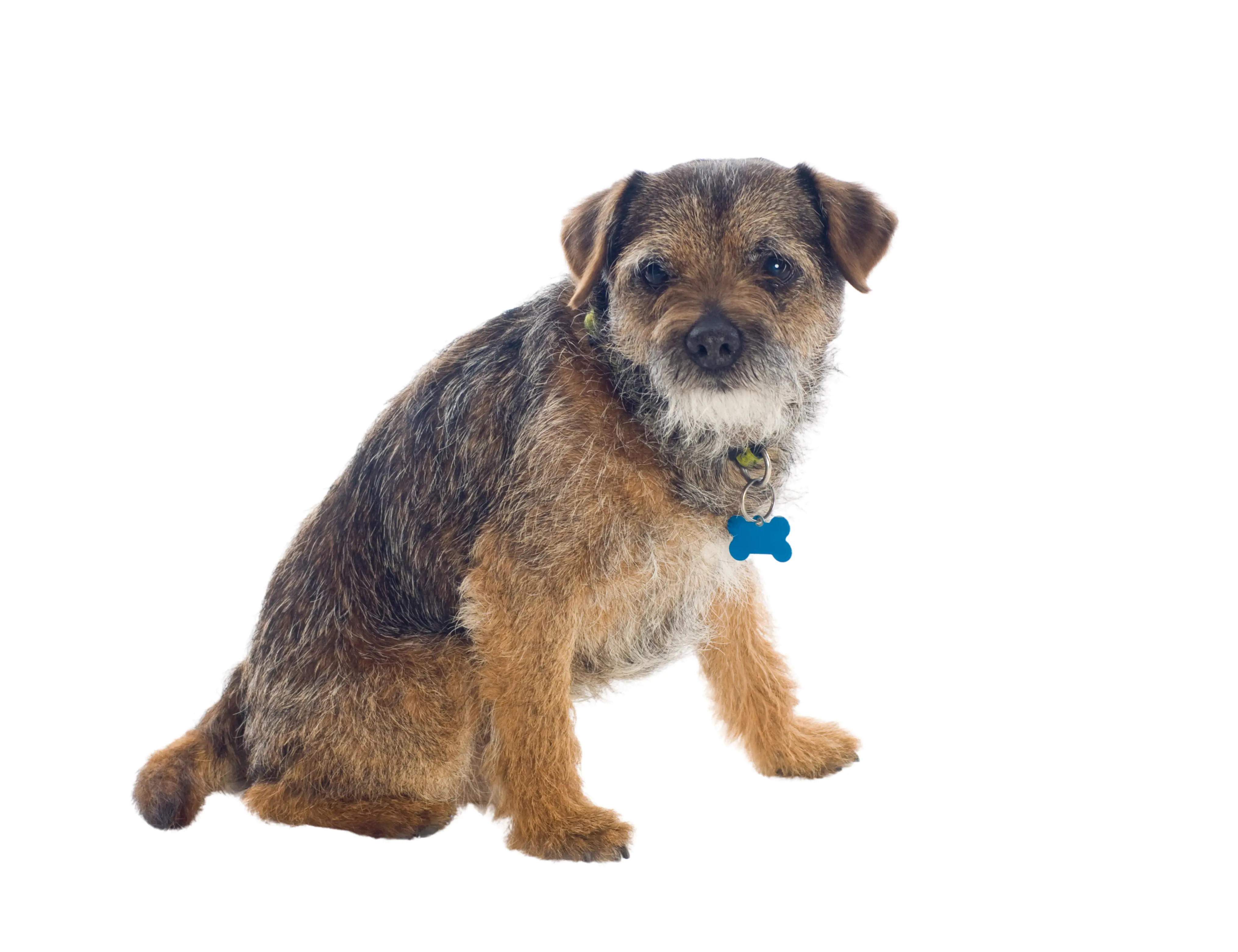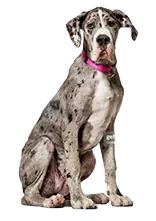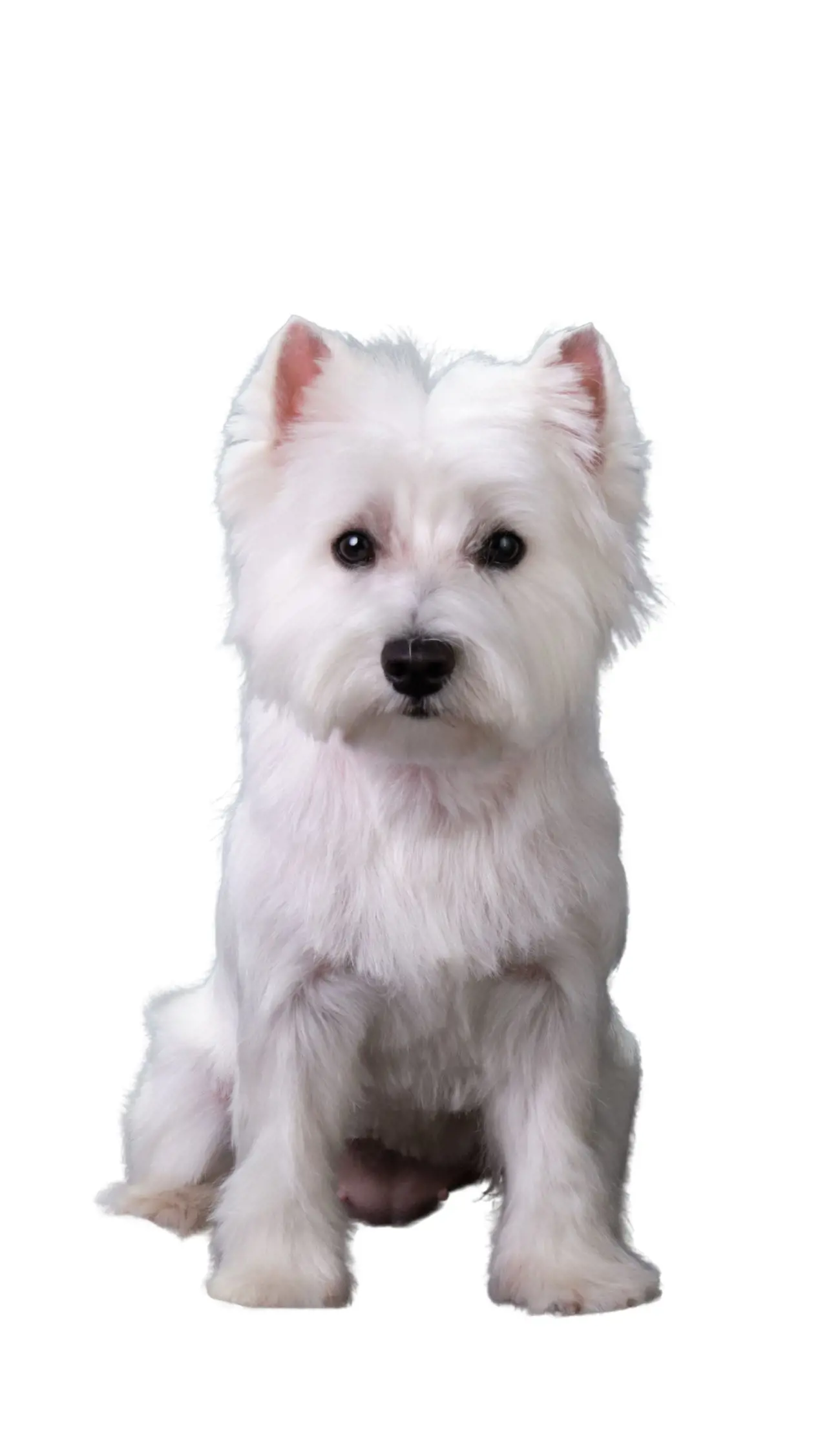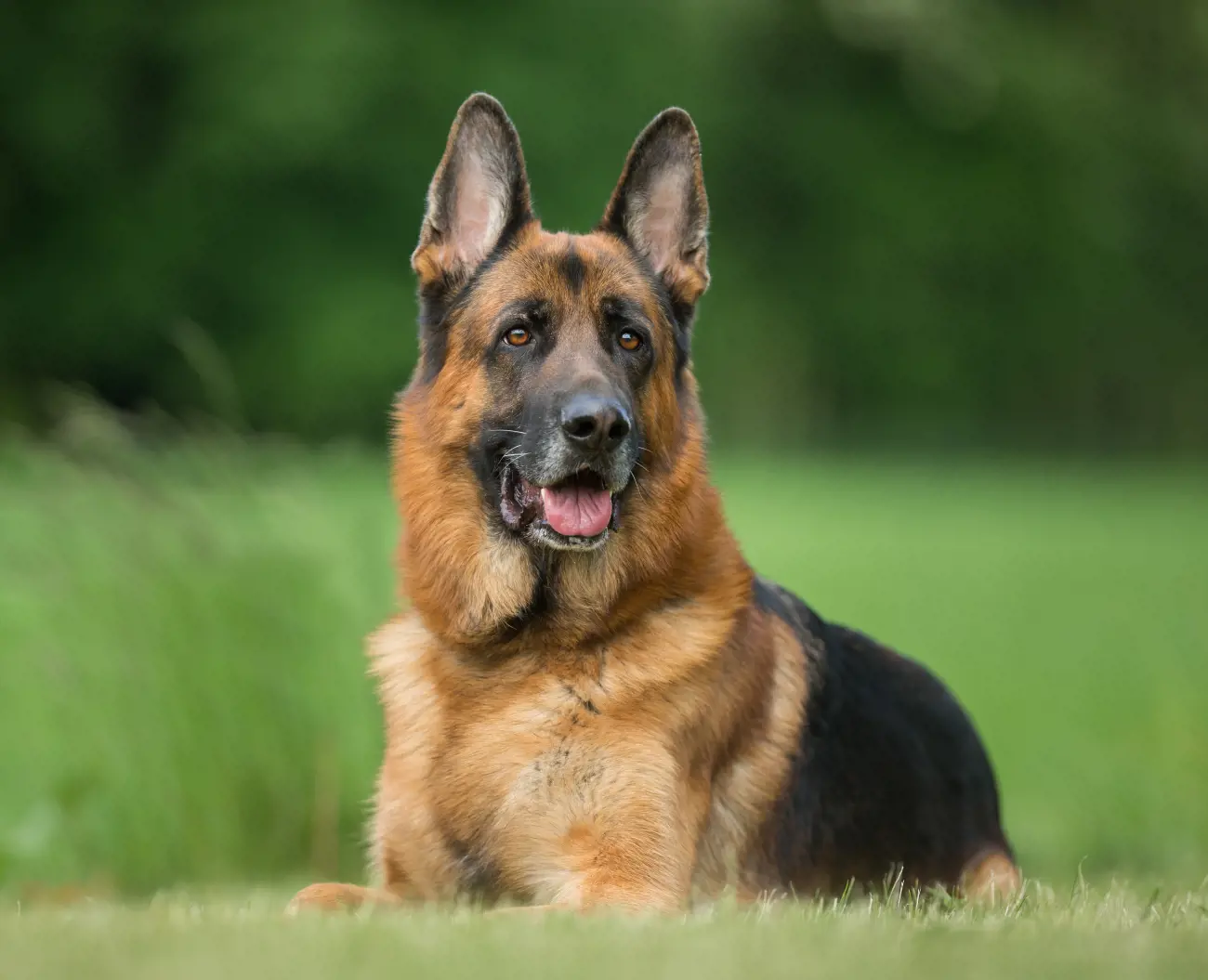
Top 6 vital stats about German Shepherds...
Social
Protective and loving
Exercise
1 hour or more a day
Grooming
2-3 times a week
Feeding
2 to 3 times a day
Training
Require extensive training
Shedding
Medium shedding
German Shepherd health conditions & feeding
Do German Shepherds need a lot of grooming?
Yes, they require a moderate grooming to maintain their double coat.
Do German Shepherds suffer from health conditions?
Yes, they can be prone to certain health conditions. These include hip and elbow dysplasia, degenerative myelopathy and eye problems like pannus and cataracts.
How many times do German Shepherds eat a day?
Adult German Shepherds need to eat twice a day, with meals spaced approximately 12 hours apart.
Caring for your German Shepherd
German Shepherds require dedicated care to maintain their health and well-being. Grooming is important for these double-coated dogs, with regular brushing needed to manage shedding and prevent matting. Nutrition plays a crucial role in their development and longevity; a balanced diet rich in high-quality proteins and appropriate calories is vital to support their active lifestyle and muscular build.
German Shepherd personality & attention
Do German Shepherd’s need a lot of training?
Yes, German Shepherds require substantial training due to their high intelligence and energy levels. These dogs thrive on mental stimulation and physical activity, necessitating a structured training regimen from an early age.
What energy levels do German Shepherd’s have?
German Shepherds are renowned for their high energy levels, a characteristic that significantly influences their behaviour and care requirements.
Are German Shepherd sociable?
German Shepherds are generally considered to be highly sociable dogs, particularly when properly trained and socialised from an early age.
German Shepherd personality summary
German Shepherds have a quick learning ability and eagerness to please which make them highly trainable, but also demand consistent guidance to prevent boredom-induced behavioural issues. These intelligent and athletic dogs possess a natural drive for physical and mental stimulation, often exhibiting sustained periods of activity throughout the day. Their energy levels are typically most pronounced during their puppy and young adult years, gradually moderating as they mature.
How do German Shepherds interact?
Good with children?
Yes, they can be excellent companions for children, provided that they are socialised from a young age.
Good with people?
Yes, German Shepherds are excellent companions for people. Known for their strong protective instincts making them devoted family members.
Good with other pets?
Yes, German Shepherds love companionship and enjoy the company of other furry pals. Their friendly disposition and playful spirit make them great playmates and companions for other dogs, if they have been properly introduced and socialised from a young age.
German Shepherd interaction summary
German Shepherds, renowned for their intelligence and loyalty, exhibit complex social behaviours that make them excellent companions. These canines form strong bonds with their families, displaying protective instincts and unwavering devotion. They tend to get along well with other dogs, especially when socialised early, and can even be gentle with smaller pets like cats if properly acclimated.
Did You Know?
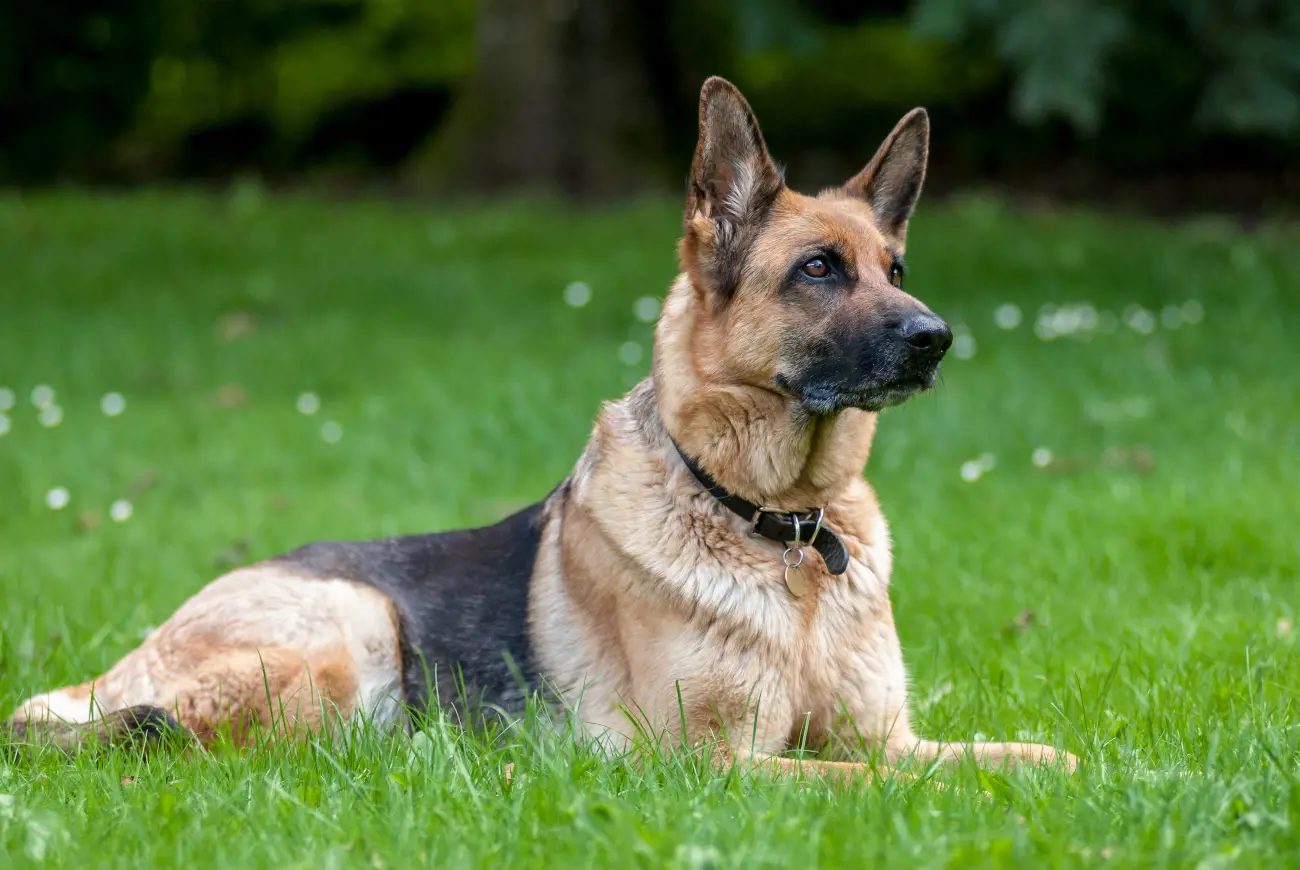
These dogs have an exceptional sense of smell, with approximately 225 million scent receptors compared to a human's mere 5 million, making them invaluable in search and rescue operations.
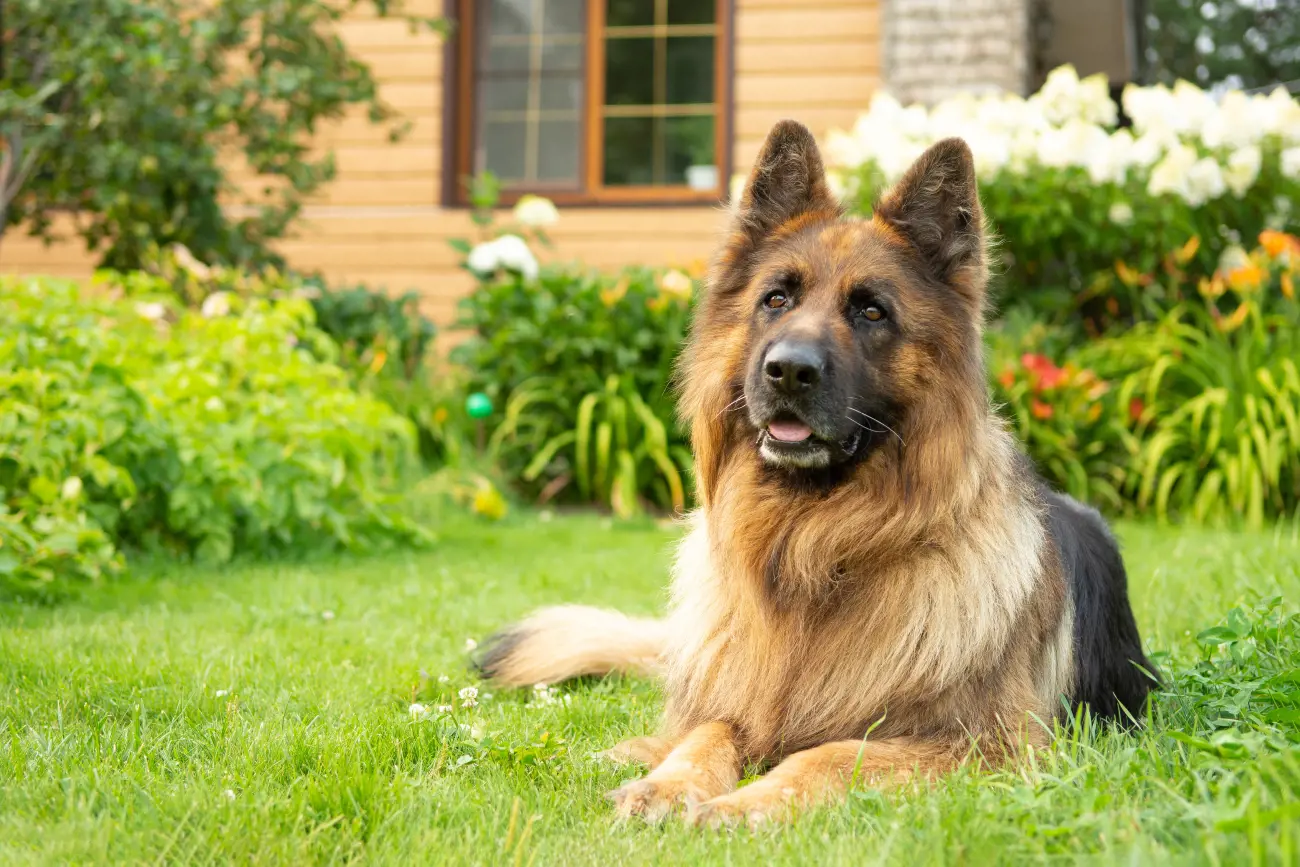
German Shepherds exhibit remarkable cognitive abilities, capable of learning and responding to over 100 verbal commands and hand signals, surpassing many other breeds in obedience and trainability.
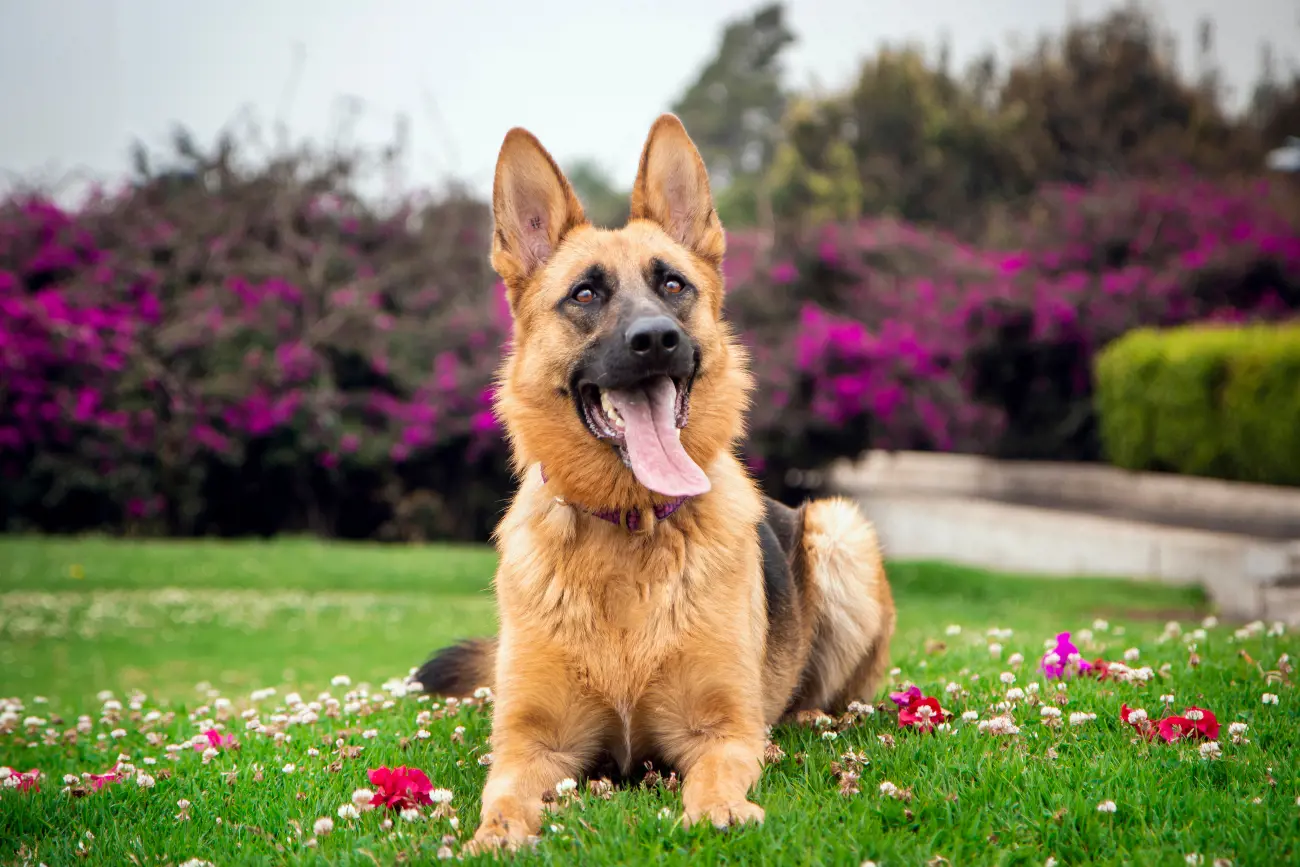
Despite their imposing appearance, these dogs have a unique physical trait: they possess a third eyelid called the "nictitating membrane," which helps protect their eyes and maintain optimal eye health.
Package available for your German Shepherd includes
Bronze
Silver
Gold
Complementary treatment
Up to
£500
per illness/injury
Up to
£750
per illness/injury
Up to
£1000
per illness/injury
3rd Party Liability (dogs only)
Up to
£1M
per illness/injury
Up to
£2M
per illness/injury
Up to
£2M
per illness/injury
Death from Illness*
*Death from illness does not apply to dogs aged 9 and over & cats aged 11 and over
£1,000
£1,500
£2,000
Death from accident
£1,000
£1,500
£2,000
German Shepherd training & exercise
- Effective training should begin early, focusing on positive reinforcement techniques to harness their natural eagerness to please. Incorporating obedience drills and problem-solving games can help sharpen their cognitive abilities.
- Mental stimulation is highly important and can be achieved through training sessions, puzzle toys, and interactive games that challenge their problem-solving skills.
- A balanced, nutritious diet appropriate for their age, size, and activity level is essential for maintaining optimal health and mood.
- A German Shepherds daily exercise routine, should include brisk walks, jogging, or agility training, to meet their high energy needs.
- Proper socialisation during the crucial developmental period, typically between 3 and 16 weeks of age, lays the foundation for a dog's future behaviour and adaptability.
- Effective methods include controlled exposure to various environments, people, and other animals, coupled with positive reinforcement techniques. This systematic approach helps German Shepherds develop resilience and appropriate responses to novel stimuli.
- Well-socialised German Shepherds exhibit reduced anxiety, improved obedience, and enhanced communication skills with both humans and other dogs.
German Shepherd common health conditions
- This hereditary condition affects the hip joint, causing pain and mobility issues in affected dogs. German Shepherds are particularly susceptible, with studies indicating a prevalence rate of up to 20% in the breed.
- This is a progressive neurological disorder that is an inherited condition that causes gradual weakness and paralysis of the hind limbs.
- Pannus, a chronic inflammatory condition, is particularly common in this breed and can lead to vision impairment if left untreated.
- Other ocular issues include progressive retinal atrophy and cataracts, which may develop as the dog ages.
- Regular veterinary check-ups, balanced diet and a stress free environment are key to maintaining your German Shepherds health.
German Shepherd health & maintenance
- A diet rich in high-quality protein is essential, typically comprising 18-22% of their daily calorie intake for adults and 22-26% for puppies. Equally important is the inclusion of appropriate fats, carbohydrates, vitamins, and minerals.
- Feeding adult German Shepherds twice daily with measured portions based on their weight, age, and activity level is recommended.
-
Nail trimming should be done monthly to prevent discomfort and potential mobility issues. Checking and cleaning the ears weekly helps prevent infections.
-
Regular brushing 2-3 times a week will help manage loose fur and distribute natural oils throughout the coat.
- German Shepherds should be bathed every 3-4 months, or more frequently if they engage in extensive outdoor activities. When bathing, it's vital to use lukewarm water and dog-specific shampoos that maintain the natural oils in their double coat.
- Thorough rinsing is paramount to prevent skin irritation, followed by careful drying to avoid moisture retention in their dense undercoat.
Frequently asked questions
Yes, German Shepherds are relatively high maintenance dogs. They need regular grooming due to their thick double coat, that sheds twice a year and have a predisposition to several health conditions like hip dysplasia.
German Shepherds are indeed naturally protective of their owners. This breed possesses innate guarding instincts, developed through centuries of selective breeding for working and herding roles. Their protective nature manifests in heightened alertness to potential threats and a strong bond with their family members.
German Shepherds should not be left alone for extended periods. They can develop anxiety or destructive behaviours when isolated. Ideally, adult German Shepherds should not be left alone for more than 4-6 hours at a time.
German Shepherds are not inherently dangerous when properly trained and socialised. These intelligent and loyal dogs are often employed in police and military work due to their trainability and protective instincts.
German Shepherds can coexist harmoniously with cats as long as they are carefully introduced and socialised from an early age.






